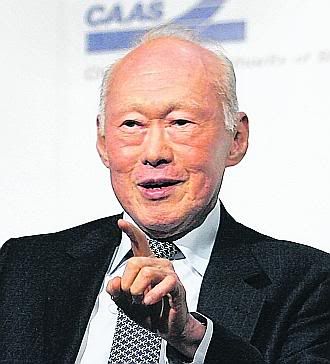- Joined
- Mar 12, 2009
- Messages
- 13,160
- Points
- 0
Public Service Division embarks on survey of its internal, private sector HR policies
By Imelda Saad | Posted: 24 April 2010 1650 hrs

Office workers are seen during a lunch break at the financial district in Singapore.
SINGAPORE: Singapore's Public Service Division is embarking on a study of jobs both in the public and private sectors to see how it can improve on its Human Resource practices. This is the first time the Public Service is conducting such a survey.
The two-month long study is the latest attempt by the Public Service Division within the Prime Minister's Office to benchmark itself against jobs in the private sector.
When contacted, PSD said the survey is part of an internal study to help in understanding generational and other differences in values and attitudes between public and private sector employees.
The study targets working professionals across all age groups.
PSD would not say how many people would be involved in the study. It's understood that those in the private sector are picked at random.
HR experts said the survey is timely.
Paul Heng, MD, Next Career Consulting Group, said: “The world has changed quite a fair bit. Looking at the macro view, I think Singapore is facing two key challenges.
“One would be the perennial problem of limited talent in the market. Secondly, it is the aging population.
So I think the PSD is looking at the situation where they need to look at a limited pool of talent and how they can best compete for these people versus the private sector."
The last time the PSD did a major review of its HR policy was in 2000 when refinements were made to salaries of civil servants.
Wages are now bench-marked against top earners from six professions within the private sector namely bankers, lawyers, accountants, engineers as well as employees of Multi-National Cooperations and local manufacturers.
Although the gap is closing, there's still a perception that salaries within the civil service is lagging.
But more than just pay, experts said other areas that need to be addressed include the quality of civil service jobs so employees are motivated to stay on. - CNA/vm
How did the above statement suddenly come about ?
By Imelda Saad | Posted: 24 April 2010 1650 hrs

Office workers are seen during a lunch break at the financial district in Singapore.
SINGAPORE: Singapore's Public Service Division is embarking on a study of jobs both in the public and private sectors to see how it can improve on its Human Resource practices. This is the first time the Public Service is conducting such a survey.
The two-month long study is the latest attempt by the Public Service Division within the Prime Minister's Office to benchmark itself against jobs in the private sector.
When contacted, PSD said the survey is part of an internal study to help in understanding generational and other differences in values and attitudes between public and private sector employees.
The study targets working professionals across all age groups.
PSD would not say how many people would be involved in the study. It's understood that those in the private sector are picked at random.
HR experts said the survey is timely.
Paul Heng, MD, Next Career Consulting Group, said: “The world has changed quite a fair bit. Looking at the macro view, I think Singapore is facing two key challenges.
“One would be the perennial problem of limited talent in the market. Secondly, it is the aging population.
So I think the PSD is looking at the situation where they need to look at a limited pool of talent and how they can best compete for these people versus the private sector."
The last time the PSD did a major review of its HR policy was in 2000 when refinements were made to salaries of civil servants.
Wages are now bench-marked against top earners from six professions within the private sector namely bankers, lawyers, accountants, engineers as well as employees of Multi-National Cooperations and local manufacturers.
Although the gap is closing, there's still a perception that salaries within the civil service is lagging.
But more than just pay, experts said other areas that need to be addressed include the quality of civil service jobs so employees are motivated to stay on. - CNA/vm
How did the above statement suddenly come about ?

